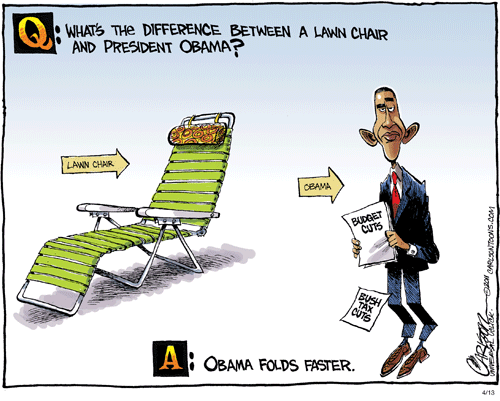Oh, wouldn’t this be lovely? Now lets see if Timmy and Bill can convince Eric that there is nothing to see here.
Goldman Sachs Misled Congress After Duping Clients, Levin Says
Goldman Sachs Group Inc. (GS) misled clients and Congress about the firm’s bets on securities tied to the housing market, the chairman of the U.S. Senate panel that investigated the causes of the financial crisis said.
Senator Carl Levin, releasing the findings of a two-year inquiry yesterday, said he wants the Justice Department and the Securities and Exchange Commission to examine whether Goldman Sachs violated the law by misleading clients who bought the complex securities known as collateralized debt obligations without knowing the firm would benefit if they fell in value.
The Michigan Democrat also said federal prosecutors should review whether to bring perjury charges against Goldman Sachs Chief Executive Officer Lloyd Blankfein and other current and former employees who testified in Congress last year. Levin said they denied under oath that Goldman Sachs took a financial position against the mortgage market solely for its own profit, statements the senator said were untrue.
Goldman criticised in US Senate report
By Tom Braithwaite in Washington and Francesco Guerrera and Justin Baer in New York,
Financial Times
April 14 2011 00:15 | Last updated: April 14 2011 00:15
US Senate investigators probing the financial crisis will refer evidence about Wall Street institutions including Goldman Sachs and Deutsche Bank to the justice department for possible criminal investigations, officials said on Wednesday.
Carl Levin, Democratic chairman of the powerful Senate permanent subcommittee on investigations, said a two-year probe found that banks mis-sold mortgage-backed securities and misled investors and lawmakers.
“We will be referring this matter to the justice department and to the SEC (Securities and Exchange Commission),” he said. “In my judgment, Goldman clearly misled their clients and they misled Congress.”
Last year, Goldman paid $550m to settle SEC allegations that it defrauded investors in Abacus, a complex security linked to subprime mortgages.
Naming Culprits in the Financial Crisis
By Gretchen Morgenson and Louise Story
New York Times
A voluminous report on the financial crisis by the United States Senate – citing internal documents and private communications of bank executives, regulators, credit ratings agencies and investors – describes business practices that were rife with conflicts during the mortgage mania and reckless activities that were ignored inside the banks and among their federal regulators.
The 650-page report, “Wall Street and the Financial Crisis: Anatomy of a Financial Collapse,” was released Wednesday by the Senate Permanent Subcommittee on Investigations…
……The result of two years’ work, the report focuses on an array of institutions with central roles in the mortgage crisis: Washington Mutual, an aggressive mortgage lender that collapsed in 2008; the Office of Thrift Supervision, a regulator; the credit ratings agencies Standard & Poor’s and Moody’s Investors Service; and the investment banks Goldman Sachs and Deutsche Bank.
“The report pulls back the curtain on shoddy, risky, deceptive practices on the part of a lot of major financial institutions,” Mr. Levin said in an interview. “The overwhelming evidence is that those institutions deceived their clients and deceived the public, and they were aided and abetted by deferential regulators and credit ratings agencies who had conflicts of interest.”

 The House and Senate will put the finishing touches on last week’s budget crisis over the budget for 2011. While the President and the Republicans were busy in front of the cameras praising themselves for “victory”, the Congressional Budget Office was counting the “beans”. Remember the much publicized $38.5 billion in cuts? Well, it will only reduce the deficit by $352 million. That is
The House and Senate will put the finishing touches on last week’s budget crisis over the budget for 2011. While the President and the Republicans were busy in front of the cameras praising themselves for “victory”, the Congressional Budget Office was counting the “beans”. Remember the much publicized $38.5 billion in cuts? Well, it will only reduce the deficit by $352 million. That is 
 Katrina vanden Heuvel:
Katrina vanden Heuvel:  The Obama administration has gone over to the dark side with stretching the “terrorist” category, going far further that Bush or Cheney would ever had dreamed. They have now compared an
The Obama administration has gone over to the dark side with stretching the “terrorist” category, going far further that Bush or Cheney would ever had dreamed. They have now compared an  On this day in 1742,
On this day in 1742,
Recent Comments